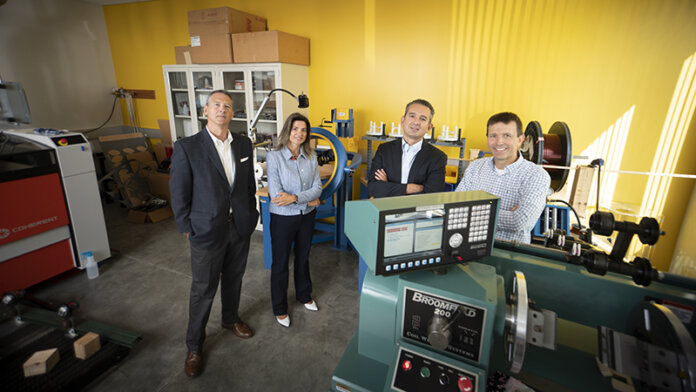Purdue University engineers and the Indiana Department of Transportation (INDOT) are working to make it possible for electric vehicles ranging from tractor-trailers to passenger cars to wirelessly charge while driving on highways.
Construction work began April 1, 2024, on a quarter-mile test bed of U.S. Highway 231/U.S. Hwy. 52 in West Lafayette, Ind., that the team will use for testing how well a patent-pending system designed by Purdue engineers can provide power to a heavy-duty electric truck traveling at highway speeds.
The electric truck, provided by Indiana-based company Cummins Inc., will drive over the test bed as part of a pilot program tentatively planned to start in 2025. The hope is to electrify a section of an Indiana interstate in the next four to five years.
A few other states and countries have also begun testing roads that wirelessly charge EVs. But making this possible for highways — and heavy-duty trucks in particular — is a unique challenge. Because vehicles travel so much faster on highways than city roads, they need to be charged at higher power levels.
The Purdue-designed wireless charging system is intended to work at power levels much higher than what has been demonstrated in the U.S. so far. By accommodating the higher power needs for heavy-duty vehicles, the design also can support the lower power needs of other vehicle classes.
An electrified highway in Indiana would serve much of the nation’s traffic. Eighty percent of the U.S. can be reached within a day’s drive from the state’s pass-through highways.
Building electrified highways with heavy-duty trucks in mind would maximize greenhouse gas reductions and the economic feasibility of developing infrastructure for EVs.
Heavy-duty trucks are one of the biggest sources of greenhouse gas emissions for the U.S. transportation sector because they make up a large portion of interstate traffic. Compared with passenger cars, these trucks also need a lot more fuel so that they can constantly transport everything from packages to groceries.
“The so-called ‘middle mile’ of the supply chain, which refers to all the travel heavy-duty trucks have to do to carry goods from one major location to another, is the most challenging part of the transportation sector to decarbonize,” says Nadia Gkritza, a Purdue professor of civil engineering and agricultural and biological engineering.
But if electric heavy-duty trucks could charge or maintain their state-of-charge using highways, their batteries could be smaller in size and they could carry more cargo, reducing the costs of using EVs for freight transportation. Since trucking contributes the most to U.S. gross domestic product compared with other modes of freight transportation, lowering costs for heavy-duty electric trucks could help attract more investment into electrifying highways that all vehicle classes would share.
“We’re developing a system that has the power to charge semitractor-trailers as they move 65 miles per hour down the road,” says John Haddock, a professor in Purdue’s Lyles School of Civil Engineering.
Technology Purdue is developing would enable highway pavement to provide power to EVs similarly to how newer smartphones use magnetic fields to wirelessly charge when placed on a pad.
The team has completed testing of how well 20-foot-long sections of concrete and asphalt could handle heavy loads with the transmitter coils embedded. Researchers imitated truck traffic by having a machine repeatedly drive a loaded one-half semi axle over the pavements.
Alongside the pavement mechanical tests, the team has also done lab tests verifying the electromagnetic performance of the bare transmitter coils and receiver coils.
The researchers anticipate that it may be 20 to 30 years before EVs can receive the full power they need while driving at highway speeds. It is up to EV manufacturers to decide whether to incorporate receiver coils into their vehicles.
Photo credit: Purdue University/Vincent Walter




